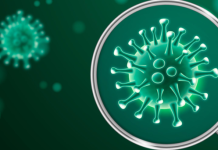
Bacon enthusiasts everywhere have dropped to their knees and cried out this morning as the World Health Organization (WHO) publicly acknowledged that processed meats, including sausage, ham, hot dogs, and bacon, cause cancer. With this (honestly not that) stunning revelation, if we take health management seriously, breakfast will never be the same again.
The International Agency for Research on Cancer (IARC), a WHO agency based in France found “sufficient evidence” that qualifies processed meats to be categorized carcinogenic, alongside tobacco, asbestos, and diesel fumes. Some 800 studies were used in compiling the report. Dr. Kurt Straif, head of the IARC, said in a statement:
“For an individual, the risk of developing colorectal (bowel) cancer because of their consumption of processed meat remains small, but this risk increases with the amount of meat consumed.”
Joey Chestnut and Takeru Kobayashi are screwed.
The IARC report didn’t spare red meat — such as beef, lamb, and pork — either. Red meats are classified as a “probable” carcinogen, categorizing it alongside glyphosate, the active ingredient in a variety of weed killers. The lower classification of red meat reflects that there exists only “limited evidence” that red meat is carcinogenic.
While the IARC is not suggesting that eating processed meat is as bad as smoking, that still doesn’t negate the finding that each 50 gram portion of processed meat, which is equal to about two slices or ham or a sausage, eaten daily increases the risk of colorectal cancer by 18 percent.
Some countries, none of which are the United States, health management policies exist that limit the consumption of red meat and processed meats. However, as the IARC pointed out, such health management policies focus on heart disease and obesity, not cancer risks.
The report has spurred backlash from the meat industry, because of course it has. They argue that meats are part of a balanced diet and that cancer risks need to be assessed in a broader scope that includes lifestyle and environmental factors.
The North American Meat Institute, in particular, fired back at the IARC report, claiming the IARC ignored “numerous” studies that found no link between meat and cancer.
IARC director Christopher Wild stated that the findings support current recommendations pertaining to public health management policies that call for limiting meat intake. But he also stressed that there does exist nutritional value in red meat. He said the risks and benefits must be balanced by governments and international regulatory agencies to “provide the best possible dietary recommendations.”
Is it weird that I really want a hot dog right now?





